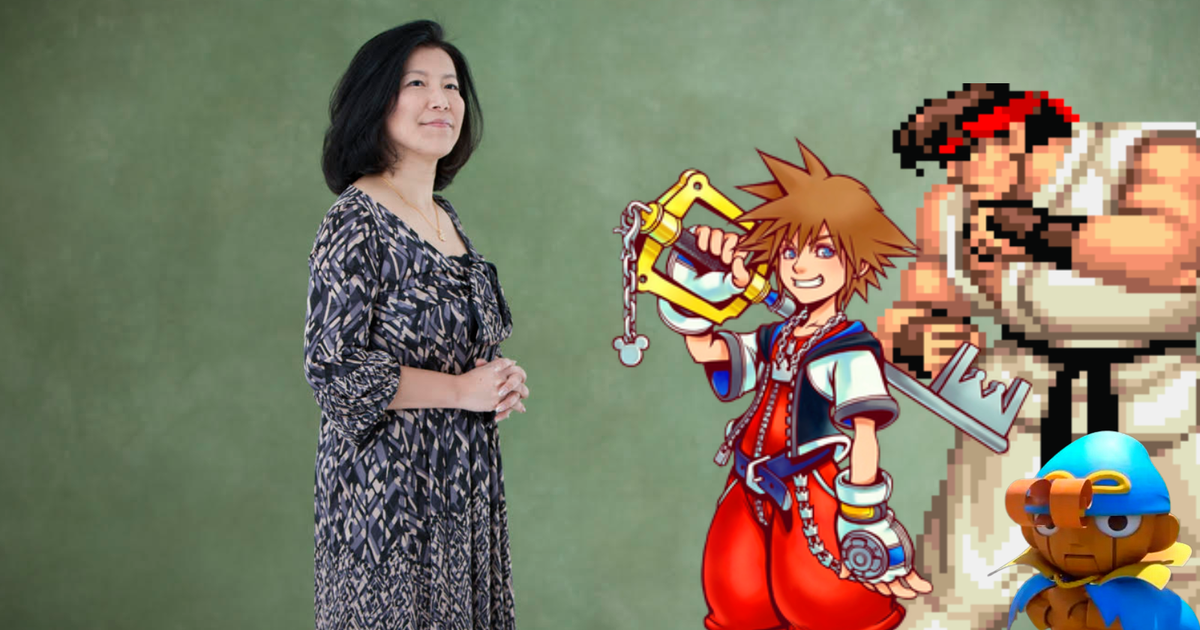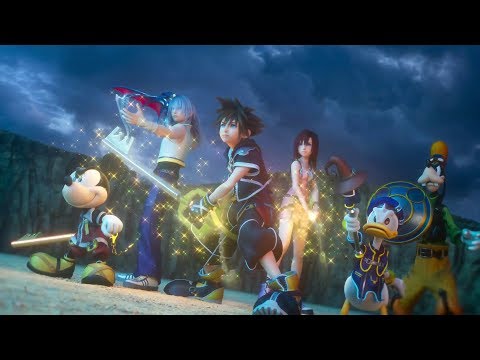Yoko Shimomura is the latest recipient of the prestigious BAFTA Fellowship award, given to those who have made exceptional contributions to the medium.
Shimomura has worked as a game music composer for over 35 years, beginning at Capcom on the likes of Street Fighter 2 and Final Fight, before moving to Square Enix where she composed scores for some of the company’s most iconic RPGs: Super Mario RPG, Legend of Mana, and of course the Kingdom Hearts series.
She left Square Enix in 2002, but has continued working freelance, composing scores for the Mario & Luigi series and Final Fantasy 15, as well as the Kingdom Hearts games for which she has become particularly beloved.
Ahead of her receiving the honours at this year’s BAFTA Games Awards, I spoke with Shimomura about her career, the evolution of game music, and why she was drawn to RPGs in particular.
I read that after music college your family and tutors were worried about you moving into the games industry. You’ve obviously had huge success since then, do you believe you made the right choice? Are your family accepting of your success?
It wasn’t super high levels of worry, they weren’t really afraid about it. They just didn’t know what the games industry was, so they weren’t really sure what kind of industry I was getting into. I suppose, in that sense, they were maybe slightly afraid. But I think they have definitely come around to that now. They’ve seen, obviously, the fact that I’m doing concerts with game music now, and there are so many fans out there who are really enjoying the music I make. So I think they’ve come to accept it and understand what it is now.
Do you think the reputation of working in games has changed and is more positive now?
I think the awareness of the games industry is just so much higher than it used to be. My family, they see that, and they’re always saying, ‘Yeah, go on! Keep trying harder!’. And they’re supporting me now in what I’m doing, because they know what it is. Certainly the games industry itself, the fact that there are now young people who want to make music, and they specifically want to make game music, the fact we’re seeing that really does show how much more well-known the industry is now.
How do you think composing for video games has changed and evolved over the course of your career? What’s been the impact of new technology being developed?
In terms of the evolution of gaming music, there were probably two really big phases where things switched and evolved rapidly. The first one, we [start with] the Nintendo Entertainment System when you had very limited sound resources you could use in the game, all internally generated sound effects that you just had to rearrange together. And when that changed to the Super Nintendo era, the internal sound generation capabilities became that much higher and you got the ability to sample pre-recorded music even at a low level, but that was something you just could not do before.
The next big change was a couple of generations later, when you actually got the ability to fully stream music that was recorded as regular music outside of the game, and then just put whatever you want into the game. Those were the two main points which changed, certainly, the breadth of what I could express in my music and technically what I could make.
What kind of challenges do you face now that you didn’t before?
I think it’s probably in the number of people who are now involved in making the music for games. When we’ve got orchestral recordings, for example, it’s going to be maybe 50 people, sometimes even more than 50. You’ve got a really big team of people you’ve got to manage and organise to do a convincing job. I think in the past, as long as I worked hard myself and I did it right then you could make something. But now, with so many extra people involved in the recordings, it’s managing them and getting them all together on the same page. I think that has definitely become harder.
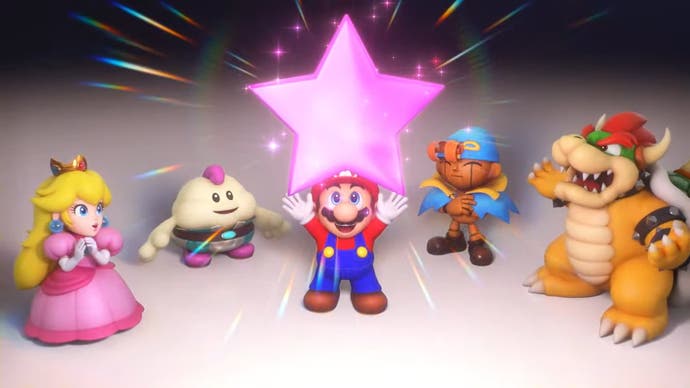
Final Fantasy composer Nobuo Uematsu has spoken about the time commitment for composing a full score, and why he’s unable to do it now. What does that commitment look like for you?
I don’t remember exactly what Mr. Uematsu might have said, so I can’t comment specifically on what he said, but certainly I understand the sentiment there. There is a lot of work, definitely, to create the whole soundtrack for a single game. If it’s just the creation of the music tracks, just the composing work, I think that’s obviously a fair amount of work, but it’s still something that’s possible. Where the extra work comes in is outside of that: managing other musicians, for example, organising orchestral recordings, etc. And I think what’s become important there is perhaps the art of delegation. So saying, ‘Okay, there’s this one musician, and I’d really trust him on just this part, so I’ll leave it down to him’. Or to organise the orchestra, I’ll leave someone to manage that. But certainly, from my own perspective, I think if people do come to me and ask me to create the whole soundtrack for another game, that’s still something I’d very much be willing to take on.
What drew you to composing music for RPGs? What did that allow you to achieve that you couldn’t with other genres?
I have recently been working perhaps on a few more action style games – I’m doing a lot for Monster Hunter, they need a lot of orchestral tracks so I’ve been working on those. But personally, I really like classical music, it’s one of my favorite styles of music and I always wanted to create classical style music for games, and piano style compositions as well. Back in the old days with Street Fighter 2 and those kinds of action games, you didn’t really get chances to use those kinds of styles of music. They just didn’t really fit the way action games were in those days. So I think that was perhaps one thing that moving to RPGs did allow me to do.
The other thing, of course, is music that really triggers emotions. Feelings of sadness and melancholy, and expressing that through music. That’s something which really works in cut scenes and dramatic story scenes, but perhaps the action games of the old days didn’t have so many opportunities to [compose for this]. I think that’s probably the biggest change. It allowed me to do those things that I always wanted to do with game music in the first place.
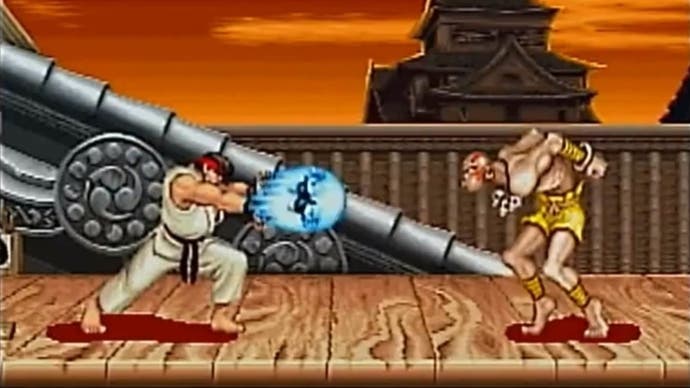
How would you describe your musical style? I know that’s difficult to answer! I think you’re best known for your use of melody and musical colour, how important are they for you?
As you say, that is a very, very difficult question to answer. I think when I first started out making music for games, I really wanted to write melodies. I think that was what I really got into. So I had in my head the idea that I was going to be a composer who was really focused on the melodies for the games and wrote beautiful melodies. But when I started working on game music, I realised very quickly that there’s not one part of the music which is more important than any other. They always say that the three core elements are melody, harmony, and rhythm. But I soon realised that none of them are more important than the others. You have to balance them out. So if I had to say, my style is really about getting the right balance between all of those elements and making sure they all work together to express what I want.
What does your composition process look like? Where do you look for inspiration?
I don’t have one specific thing I always do first, there’s a lot of variation in the way it can go. Maybe I’m listening to something and I get inspiration there, or I may be playing around with something, playing music myself, and something comes out, I think ‘oh yeah, that’s good, we’ll use that’. But in terms of where I always start, I really want something that matches with the kind of music they’ve asked me to make. So I start out with the briefing, and really look into that. I look at what I’ve got available to understand what scenes in the game the music [will be used] for. I really dig deep into the documentation. Sometimes there’s a text explanation they give me, saying we’re looking for this kind of music. And then I’ll be thinking about that unconsciously for a long time, processing it, trying to work out what would fit there. But it really does vary.
Do you have any specific musical influences?
I would say I am fairly easily influenced by other music, when I’m listening to music as just a hobby on my own in my free time. I’m sure that builds up unconsciously and slowly influences all the work I make without me even thinking about it. But in terms of being aware of other musicians and their works, I’m actually a little bit wary of going that way, because if I’m listening to one specific person with one specific song or type of music they make, for example, I really get absorbed and taken in by that, and then I feel I’m probably going to lose some of my unique style, my own colour, from that, and I’ll just be trying to reproduce that person’s music as closely as possible. So I stay away from having specific people I’m looking at or am aware of for influences. But unconsciously through listening to music in my everyday life, I think there definitely is a build-up of influence.
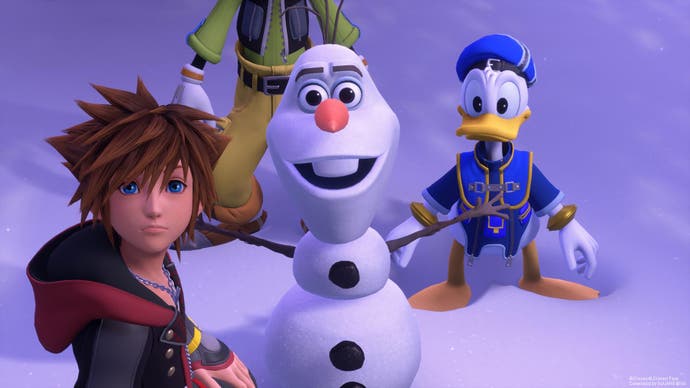
You’re well known for composing the scores to the Kingdom Hearts games, which obviously mix Disney music and Final Fantasy. What was it like taking inspiration from such famous scores, but also balancing with your own style?
The thing about Kingdom Hearts is obviously you have those original Disney works and their well-known musical styles and themes. Obviously you don’t want to take it too far away from that and completely lose that and change it to something unrecognisable, otherwise that will disappoint the fans of those original works. However, that’s also a trap, because on the other hand, if you just reproduce something that is different but still sounds basically like the same thing just reworked a little bit, then that’s not really good either, and that’s not what people are looking for. That balancing is, like you say, a very important element – trying to add a little bit of my own taste, my own colour, into that, and rework it into something new and interesting. The methodology I use to do that is very much starting out with a research period to get an idea in my head and get a good image. I’ll start by watching the original films, maybe listening to the original film soundtracks over and over again to get an image in my head of what kind of thing these [films] are about, and really have that built up within me. And again, I do the same with Final Fantasy music as well. I used to play the games a lot, so I’ll definitely listen to those and let them build up in my head too. I listen to modern music as well. It’s that phase of building up and understanding and then unconsciously that all melds together in my head, I think, and then I can actually start working to create in that direction.
How did you ensure your own musical voice didn’t get lost in that balance of Disney and Final Fantasy?
When people have ordered music for me, they’ve come to me specifically to ask me to make music for their game. And I think some aspect of that is they’ve done that because they think this is a kind of music only really I could create, or they want my personal touch on there to a certain degree. In that sense, I’m not afraid. I don’t try and avoid putting my own taste, my own spin on things in there. But there is that balance to be had. I’ll take it up to where I think is a good place – it won’t go too far and might disappoint fans of the original, or feel wrong or too over the top. It’s a good balance, but I definitely don’t avoid trying to put myself into the music now.
